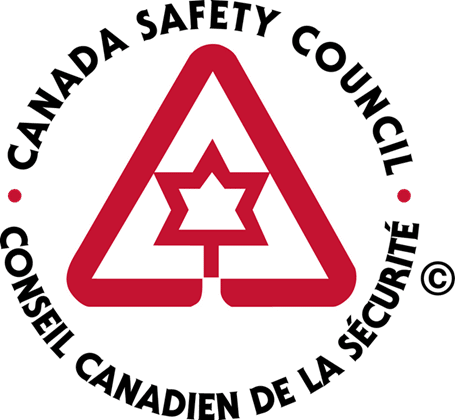Safe driving for mature Canadians
Maintaining a driver’s licence is an important issue of independence for mature Canadian drivers, especially for those who have been driving most of their life.
The aging process brings forth changes that can affect the older driver’s ability to drive safely. These include: reduced vision, particularly at night; a decrease in depth perception; and movement-limiting disabilities such as arthritis and rheumatism that slow down responses and reflexes.
November 6th – 12th is National Senior Safety Week, and Canada Safety Council reminds all mature drivers, and people who care about their aging loved ones, to be conscious of the physical and mental challenges that aging brings, and how it can affect their driving. There is no specific age which people can no longer drive. The rate of aging varies for each individual, and it is important to recognize age-related changes and learn how to compensate for them.
Medications can also affect seniors’ ability to drive. Older drivers are very likely to be taking several medications at once. It is essential to know if the medication(s) will affect their driving abilities. Some of the main factors in collisions involving older drivers are slow response, not seeing a sign, car, or pedestrian, and interaction with other drivers. Medications can make a driver more susceptible to any of these factors.
Having more than one doctor prescribe medications without knowing what the others are prescribing can produce unexpected side effects and bad reactions, which can affect driving abilities. Tell your doctor and pharmacist all the medications you are taking, including over-the-counter drugs.
While tragic stories of traffic collisions involving seniors sometimes draw calls for age-specific limits on drivers’ licences, a more realistic and practical solution lies in improving driver education and driver fitness.
The Canada Safety Council’s “55 Alive” driver refresher course helps mature drivers sharpen and update their skills, giving them tools to help stay safe on the road. The course teaches practical defensive driving techniques, slowing down, driving during the day and reducing the length of trips – all of which can help mitigate age-related challenges and keep mature drivers safer.
While independence is important to us all, we must face the fact someday we will no longer be able to drive. As many baby-boomers watch their parents deal with aging, some difficult questions arise: How do I know when mom or dad can’t drive anymore? How do I tell them?
The “55 Alive” course can be a good way for families to bring up this sensitive subject with mature drivers. Part of the course helps them prepare for the day they can’t drive anymore by helping them learn to make alternative transportation arrangements and adjust to the change in lifestyle.
Vision, Hearing and Medication
- Have regular vision and hearing examinations.
- When travelling, always wear your eyeglasses or hearing aid.
- Give yourself time to adjust to new eyeglasses and have your glasses checked periodically.
- Use medication correctly. Ask your doctor or pharmacist about the effects of prescribed medications on driving. With some medicines, you may not be able to drive at all.
- Take all medications according to the instructions.
- Make sure the combination of your medications does not impair your driving skills. If you have more than one doctor, make sure all of them know everything you are taking.
Driving Tips
- Concentrate on your driving and prepare for the unexpected.
- Keep your eyes moving and watch the entire traffic environment.
- Be alert for parked cars, pedestrians and cyclists.
- Check to the side several times before turning or merging.
- Never assume you can take the right of way, even if you know it should be yours.
- When driving in the rain or in winter, reduce speed and increase following distance.
- Maintain space cushions to the sides and behind your car.
- Plan all your trips, choosing familiar routes and avoiding dense and/or high-speed traffic.
- Avoid driving at dusk or dawn, when visibility is difficult.
- Avoid prolonged hours of driving.
- Keep windshields and rear windows clean inside and out.
- Do not drive if you are emotionally upset.
- Minimize background noise. Keep radio volume, air conditioning and heater blowing units on the lowest setting.
- Never drive after consuming alcohol.
- Take a driver improvement course such as the Canada Safety Council’s 55 Alive.
– 30 –
For more information, please contact:
Communications/Media Program Coordinator
(613) 739-1535 (ext. 228)
